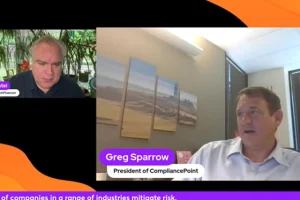Professional Plaintiffs are Lurking Around Every Corner
With the FCC’s Telephone Consumer Protection Act (TCPA) allowing for a private right of action by consumers, it’s created a sort of “sub-culture business” for litigious consumers. If your company places calls to consumers (marketing or informational), regardless of dial method (manual or automated), you put yourself at risk of being targeted by these individuals.
If targeted, more often than not, you will likely receive a demand letter requesting a specific dollar amount to make him/her go away. The amount is typically large enough (in the thousands) to make it beneficial for them, while still small enough to make you think it’s not worth taking the time and energy to defend yourself and that it’s easier just to simply pay him/her off.
Remember, you don’t have to be wrong to get threatened with a lawsuit. We often perform third-party analyses on companies’ dialing platforms and issue an opinion letter if we feel the system could be deemed an automatic telephone dialing system (ATDS) or not. Sometimes the clients are already involved in a TCPA class action lawsuit, and other times they are simply being proactive to determine if they may be using what could be deemed as an ATDS.
Last month, we were at a client site for one of these dialer analyses and observed how calls are placed. In order to place a dial, the employee must literally pick up a handset from a desktop phone, dial “9” to get a dial tone, manually press the digits on the phone to dial, and then hang up the handset to end the call. The phone was in no way connected to the CRM and the only thing that could have been any more manual would be a rotary dial phone. Regardless, this company is currently involved in TWO TCPA lawsuits for using an ATDS to dial cellphones.
Make no mistake. There are professional plaintiffs abound. One has even created her own website that explains how to sue under a section titled, “How can I personally collect money from a telemarketer.” On the site, she lists seven lawsuits against telemarketers where she has acted as the lead plaintiff. A different lead plaintiff in a recent case stated during her deposition that she has “a business suing offenders of the TCPA…it’s what I do.”
She went on to admit that she purchased 35 cellphones with prepaid minutes for the sole purpose of getting phone calls from companies attempting to reach the previous owner of the phone, without her consent. Keep in mind that she is not required to answer and notify the caller they have the wrong party. Each subsequent phone call, answered or not, is a violation.
If you are placing calls, whether marketing or informational, manually or automatically dialed, no one is safe from the litigious consumer. For information regarding preventative class action measures, the impact of the TCPA, or any of the state or federal consumer contact requirements, please reach out to us at consulting@compliancepoint.com.
Finding a credible expert with the appropriate background, expertise, and credentials can be difficult. CompliancePoint is here to help.





